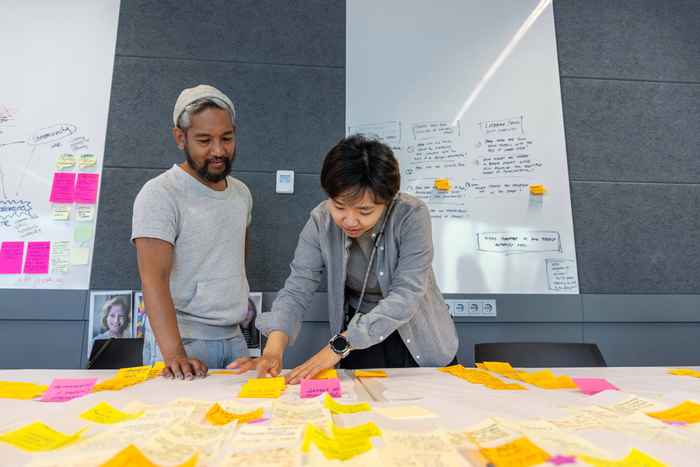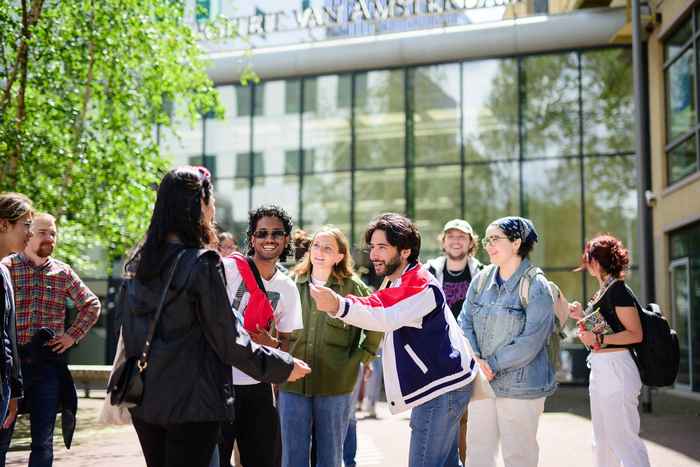Addressing Conflict: Peacebuilding in Theory and Praxis
How do we relate to conflict around us? What are the challenges and opportunities for constructive engagement within intergroup conflict? How can we – ultimately – transform conflict? In this programme, we will explore these questions and dive into the theory and praxis for peacebuilding.



-
Programme at a glance
Mode of instruction: On-campus (3 weeks) Academic dates: Sunday 20 July - Thursday 7 August 2025 Housing dates: Friday 18 July - Friday 8 August 2025 Academic fees: Student fee:
€1750. Read more about what is included in the fees.
Professional fee:
€2000. Read more about what is included in the fees.
Housing fees: €825 for a private room with shared facilities.
€900 for a private room with private facilities.
Housing is optional. Read more about university-organised accomodation.
Credits: 6 European Credits. Read more about credits and credit transfer. Early admission deadline: Saturday 1 February 2025
Students who require a Schengen Visa to study in the Netherlands are strongly advised to apply before the early deadline to ensure there is enough time to secure a visa appointment before the programme begins.
Regular admission deadline: 1 May 2025 Who is this programme for? Level: Final year Bachelors, Masters and working professionals
Background: Students should have some background – and a strong interest – in fields such as Conflict Studies, Peace and Security Studies or Humanitarian work. Working professionals who have experience in the above and would like to continue their education in this field are also welcome to apply.
-
Programme description
In this three week programme we seek to understand the interrelation between peacebuilding theory and praxis and provide a space to reflect on the professional and personal dimensions of peacebuilding. The focus will be on conflicts between social groups in various contexts such as ethnicity, nationality, gender. Throughout the course, we will make a link to the personal self: how we ourselves – as (potential) peacebuilders – relate to conflict around us. We will equip students with hands-on peacebuilding skills, including dialogue, negotiation, reconciliation and trust-building activities as well as opinion writing, ensuring they are prepared not only to understand but also to actively engage in the field of peacebuilding and to reflect on their own role within that field.
Participants will read and discuss academic sources, explore their personal involvement in intergroup conflicts and engage in a dialogue between theory-based and personal experience-based knowledge. Each day we will address a specific dimension of intergroup conflict and related directions of potential conflict engagement. We will delve into psychological and social dimensions of intergroup conflict, reconciliation and transformative justice, international relations, political and cultural identities in diverse types of contexts, conflict culture and its narratives, history and its role in identity politics, power asymmetries and gender in conflict. This interdisciplinary approach ensures a comprehensive understanding of the complexities and nuances of how we can engage constructively within intergroup conflict, what practical group work is needed and how we can integrate crucial academic insights of various disciplines in that praxis.
-
Academic director
Judith van den Boogert is an independent expert in international dialogue and peacebuilding, providing courses and advisory work in negotiation and mediation processes worldwide. Her focus lies increasingly on broadening the peacebuilding field with trauma-informed care and embodied transformation. She further works as a certified mediator, has facilitated several conflict transformation processes of opposing groups in conflict and has founded an organisation to bring insider mediation in Dutch neighbourhoods to counter polarization in Dutch society.Prior to her current work from her company Mediacio, Judith was a senior policy advisor on conflict prevention at the Dutch ministry of Defense with a focus on Africa, and a senior fellow at the Clingendael Institute for International Relations. In the latter position, Judith designed and provided training courses for (foreign) diplomats and groups in conflict in skills on international negotiation, peace mediation and intercultural communication, in cooperation with the UN and other international organisations. She started her career as a university lecturer at the University of Amsterdam at the College of Social Sciences and the Institute for Interdisciplinary Studies (2009-2015). Here she taught several academic courses, supervised theses in the minor “Conflict Studies” and was a lecturer & programme coordinator for the course International Dialogue Program Soliya.
-
Explore our community
Want to get to know more about studying in Amsterdam? Follow us on social media and join our summer community. Get a feel for our summer school vibe and our academic and social community, and learn about studying with us through the eyes of past summer school students.
- Mode
- Short-term
- Credits
- 6 ECTS, 3 weeks
- Language of instruction
- English
- Starts in
- July